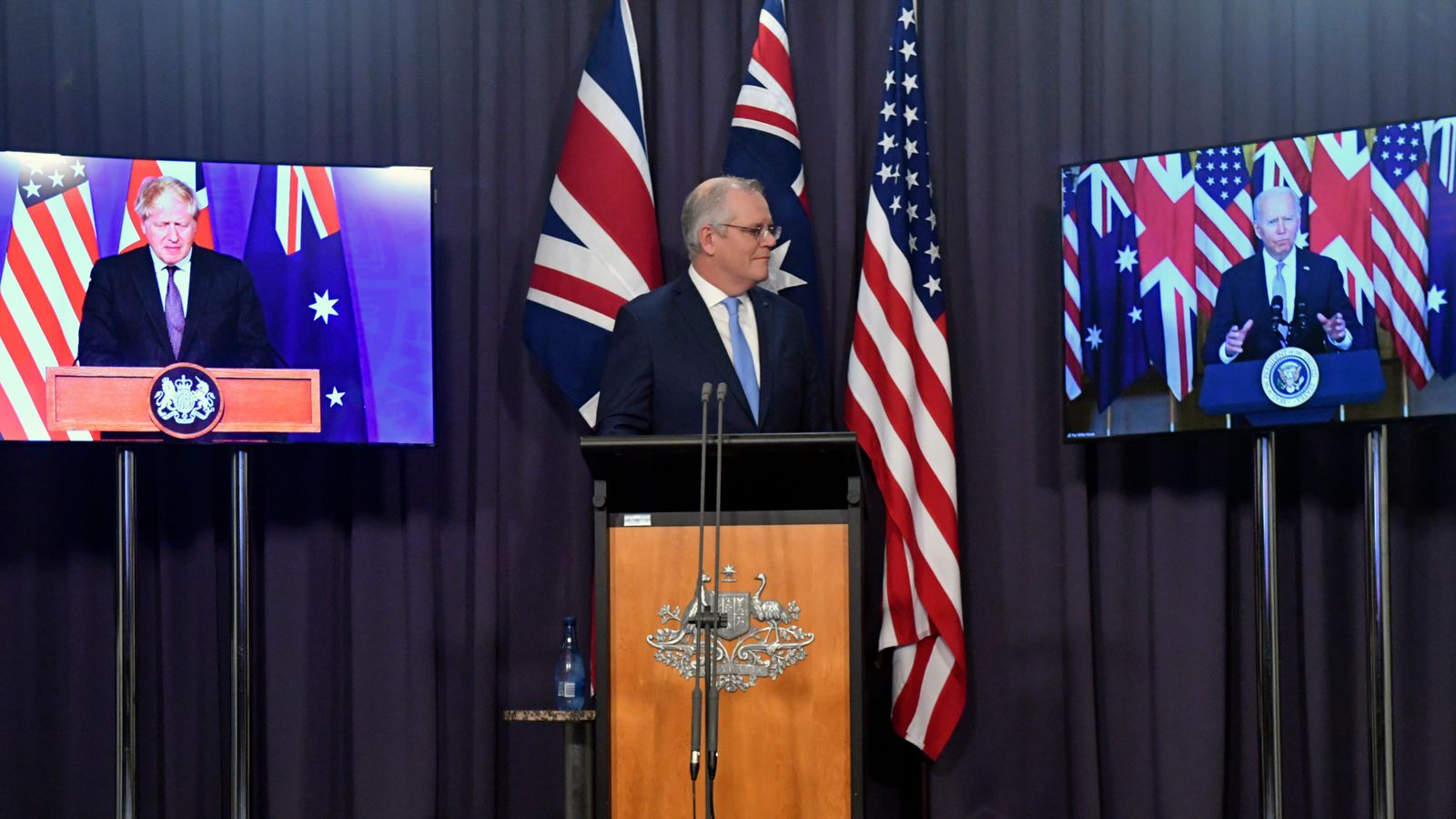A new security pact between the UK, United States and Australia is designed to build a united, democratic front against authoritarian China, but it also threatens a rift with France.
The three English-speaking partners plan to club together even more closely than before, starting with developing Australia’s first nuclear-powered submarine fleet.
Yet that spells the demise of a multi-billion-dollar Australian deal with a French manufacturer to build diesel-powered boats. France, clearly unhappy, said it showed a lack of coherence.
In a joint statement the French foreign and defence ministers said: “The American choice to push aside a European ally and partner like France from a structural partnership with Australia at a time we are facing unprecedented challenges in the Indo-Pacific region…shows a lack of coherence that France can only acknowledge and regret.”
Despite the bumpy start, the new partnership, dubbed AUKUS, is meant to help London, Canberra and Washington counter emerging threats in the Indo-Pacific region.
They did not spell it out, but the main focus is China.
Please use Chrome browser for a more accessible video player
Western allies are locked in a race with their authoritarian rivals, led by Beijing, to dominate technologies of the future – areas like cyber, artificial intelligence and quantum computing.
UK, Australia and US agree partnership to boost defences and share nuclear submarine secrets
Afghanistan: ‘Waiting for death’ – Doctors work without pay and medicines dwindle, a month into Taliban rule
North Korea missile tests were by new ‘railway-borne’ system, state media says
It sounds like science fiction, but these capabilities will shape the world over the next decade.
The countries that exploit emerging technologies first will have not only a competitive edge commercially but also geopolitically and – at the sharpest end – at times of war.
The UK, US and Australia realised the danger of a failure to keep pace technologically with China when the Chinese telecommunications firm Huawei became the lead provider globally for next generation 5G communications technology.
The allies did not have a sovereign rival that could directly compete – something that is now being corrected.
It meant China and its technology had the competitive advantage to be able to sell into markets across the world despite concerns – rejected by Beijing – of security risks.
The worry, for western allies, is if Beijing is able to dominate in the fields of artificial intelligence, cyber and quantum computers they will be able to influence the values that underpin these technologies and gain influence over the countries that use them.
But to compete and push back successfully against authoritarian regimes, western allies will need to stick together.
The UK, US and Australia will surely be hoping their respective bilateral relations with France will contain the French discontent over the submarine aspirations.






















